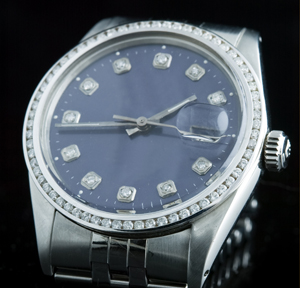Industry Surveys
Luxury Sector Study Underscores Why RMs Still Matter

The digital age does sometimes appear to erase humans from certain jobs but in the luxury space - which has a lot in common with wealth management - that's not fully the case. Good news for relationship managers, and for those who see digital tech as augmenting their value to clients.
In findings that may resonate with wealth management advisors, a
study of more than 3,100 affluent consumers around the world
shows that a third of high-income shoppers want to talk to sales
associates when they think about a purchase.
The findings from the New York-based Luxury Institute’s State of
the Luxury Industry 2020 report might suggest that the march
of online, digital services in specific sectors has – at least
for the moment – certain limits. For example, there appears to be
some maturation around “robo-advisor” hype that broke out in the
wealth sector half a decade ago, as far as industry figures tell
Family Wealth Report. (See a related discussion
around tech and the role of advisors here.)
“Despite the gains made by online commerce, stores and sales
associates remain central to the success of luxury providers,”
Luxury
Institute CEO Milton Pedraza said.
“Outstanding products and services are the bare minimum of what
is required for luxury firms to thrive today. The sales associate
remains relevant, although in some countries, such as the USA,
brands have a huge opportunity to transform their transactional
methods into emotionally intelligent relationship building
experiences.”
The report suggests that the personal relationship factor is
stronger in China than in the US. As (at least until recently)
China was minting HNW individuals at a fast pace, wealth managers
operating in Hong Kong and the mainland will want to take
note.
Among other findings from the LI report is that 35 per cent of
respondents said meeting a helpful sales professional is a top
factor in doing business with a brand; some 15 per cent said a
relationship with a sales person was a “primary driver” in
buying.
The desire to meet and talk with a salesperson is strongest in
China, where more than half (51 per cent) of shoppers say that
they like to be guided by a salesperson while shopping for luxury
goods, and 46 per cent will even go to a store to shop online
with an associate. On the other end of the spectrum, only 22 per
cent of affluent US shoppers want to interact with a sales
associate, while 29 per cent strongly prefer to be left alone.
Nearly three-fourths (70 per cent) of affluent consumers agree
that luxury brand sales associates deliver a personalized and
relationship-oriented experience, a sentiment most widespread in
China (86 per cent) and Italy (80 per cent).
More than one-third (36 per cent) of affluent consumers worldwide
report having a specific salesperson that they prefer to work
with when making a purchase from any luxury brand, a propensity
that rises to 80 per cent in China. Affluent Chinese consumers
are also most likely (37 per cent) to receive “frequent”
personalized offers from luxury salespersons, while US consumers
are least likely (9 per cent) to receive such offers.
Ranked by which luxury categories have the best salespersons:
Jewelry and watches (29 per cent), and hotels and resorts (25 per
cent) are most frequently cited as industries in which the top
sales professionals can be found. Fashion apparel (22 per cent)
and automotive (19 per cent) are also widely viewed as having
high concentrations of superior sales professionals. By contrast,
home appliances, entertainment, and insurance are categories with
the lowest percentage (7 per cent) of consumers indicating that
salespersons are exemplary.